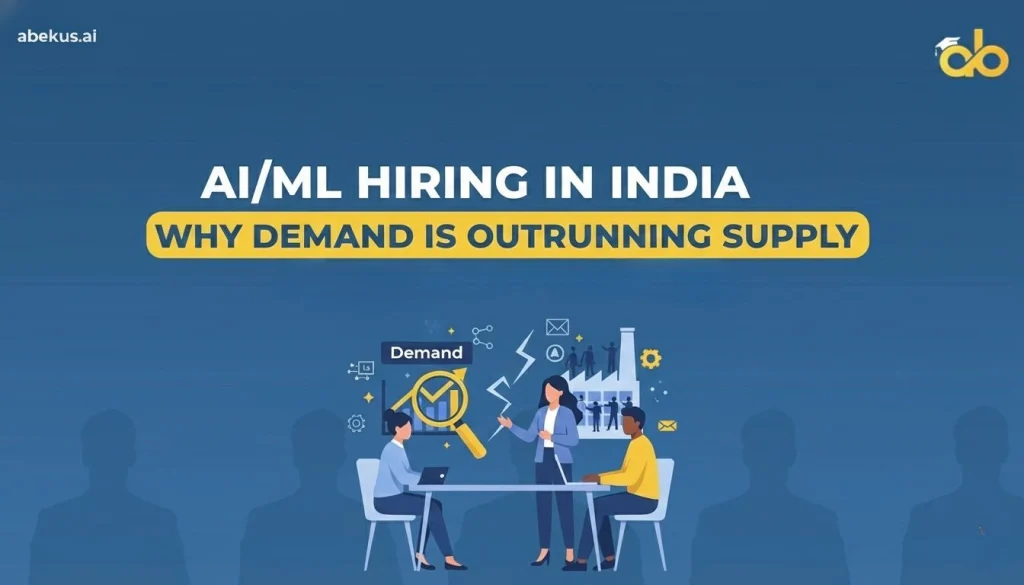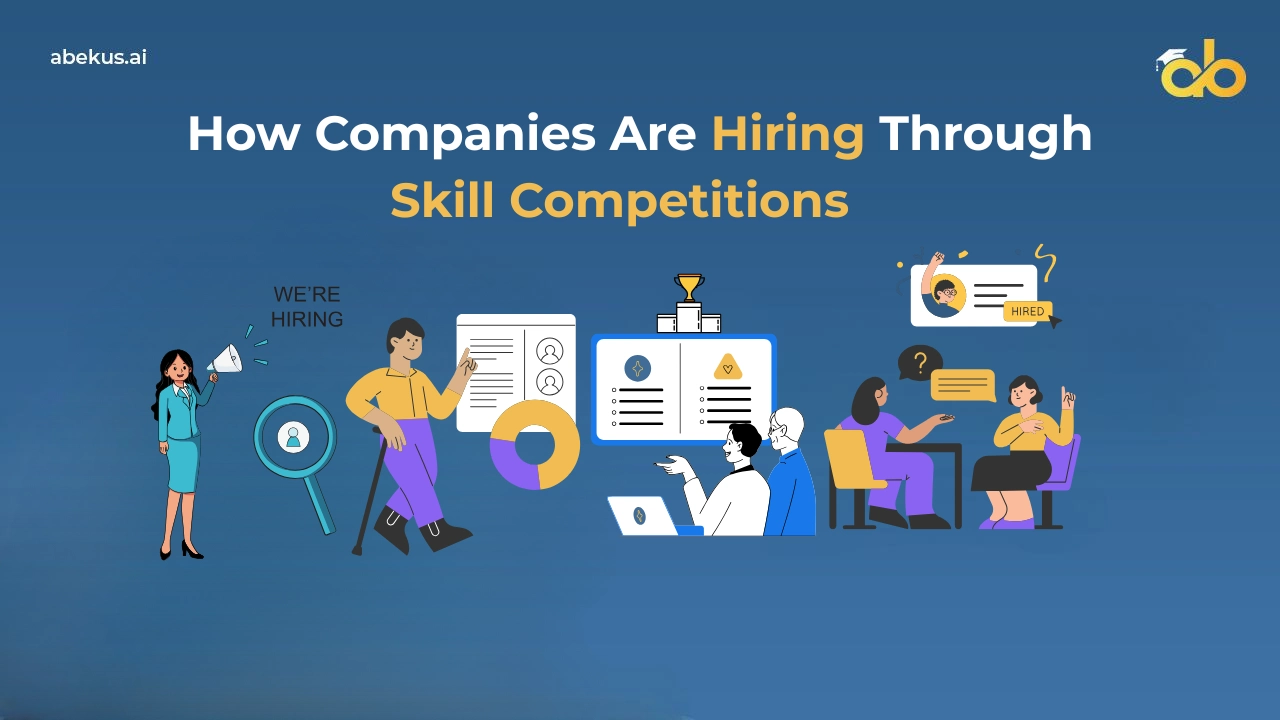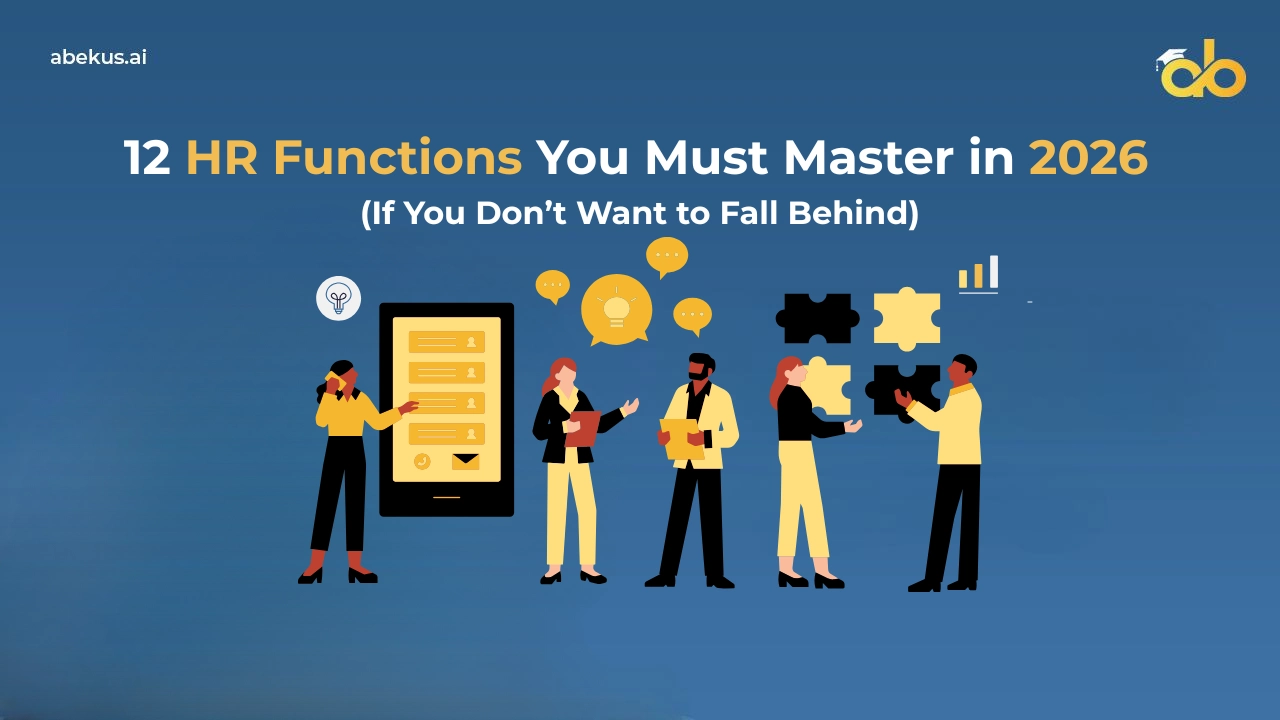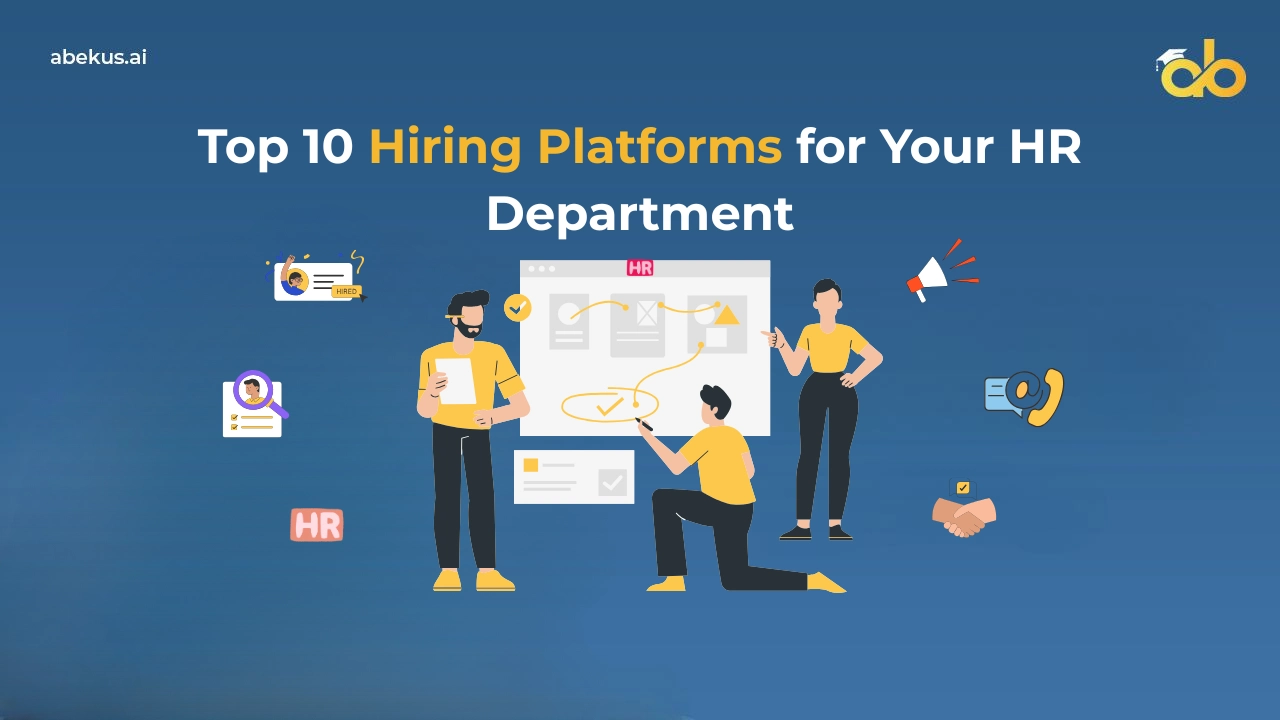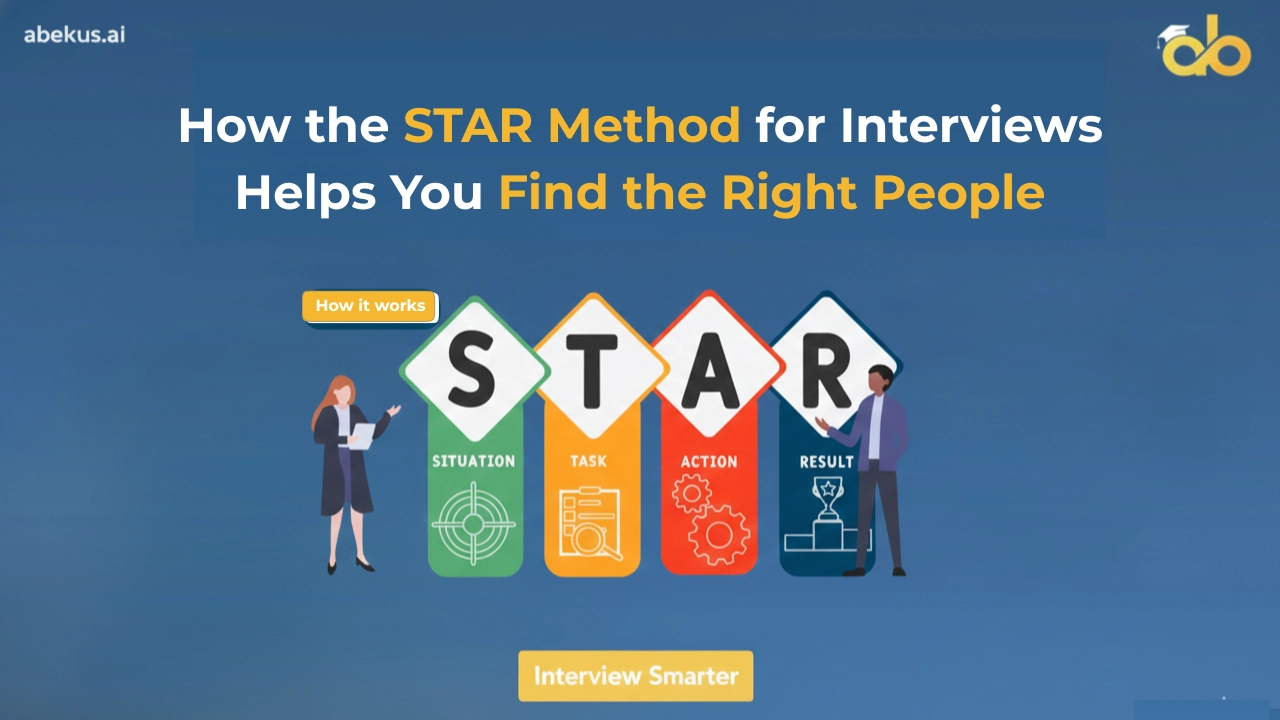Artificial Intelligence (AI) and Machine Learning (ML) are no longer futuristic buzzwords, they are the engines driving India’s digital economy. From banks and healthcare firms to e-commerce and IT giants, organizations are embedding AI into their core operations.
Check about more about Artificial Intelligence Hiring on Abekus.ai.
But here’s the problem: demand is skyrocketing, while supply is crawling.
Industry estimates show that India will need over 1.25 million AI/ML professionals by 2027, up from just 600,000 in 2022. Yet, fewer than half of graduates entering the job market today are employable in AI-related roles.
For HR and recruitment leaders, this talent crunch is more than a headache, it’s a strategic challenge. Without the right AI/ML talent, innovation slows, projects stall, and businesses lose their competitive edge.

The AI/ML Hiring Landscape in 2025
- AI is everywhere: From chatbots and fraud detection to supply chain optimization, companies across industries are adopting AI.
- India’s rank: Despite being a global IT hub, India ranks 7th in AI talent availability, far behind the US and China.
- Talent deficit: Only 46% of graduates tested are employable in AI/ML roles.
- Brain drain: A third of top-tier graduates (especially IITians) migrate abroad, draining high-end AI talent.
This imbalance is widening the gap between what companies need and what the talent pool offers.
Why Is Demand Surging?
1. Generative AI Adoption
Tools like ChatGPT, Copilot, and domain-specific AI applications are creating entirely new job categories. Companies want AI engineers, prompt engineers, and AI ethicists, roles that didn’t exist five years ago.
2. Data Explosion
Every industry is collecting vast amounts of data. Companies need data scientists and ML engineers to turn data into insights.
3. Competitive Pressure
Firms that fail to embed AI risk falling behind. The “AI arms race” is making AI hiring a boardroom priority, not just an HR concern.
4. Cross-Industry Demand
It’s not just IT companies, banks, telecom, healthcare, and manufacturing all want AI/ML talent, further stretching the supply.
Why Is Supply Struggling?
1. Outdated Education Models
Universities focus on theoretical statistics but lack training in deep learning, NLP, or real-world AI projects.
2. Limited Practical Exposure
Few students get to work with AI frameworks (TensorFlow, PyTorch) or handle large-scale datasets during their studies.
3. Brain Drain
Top AI talent leaves India for Silicon Valley, Europe, or Singapore due to better salaries and R&D opportunities.
4. Uneven Access to Learning
Only students from Tier-I colleges or urban centers often get exposure to advanced AI coursework.
5. Fast Tech Evolution
AI evolves so quickly that skills learned in 2020 are already outdated by 2025.
The Business Impact of the AI/ML Talent Gap
- Delayed Projects: Critical AI initiatives get stuck waiting for talent.
- Rising Hiring Costs: Fierce competition leads to bidding wars for skilled AI engineers.
- Outsourcing Dependency: Companies often rely on external consultants, which inflates budgets.
- Innovation Bottlenecks: Without in-house AI talent, companies fall behind on innovation.
How HR Leaders Are Responding
- Skills-Based Hiring
- Companies are moving away from strict degree requirements.
- Focus is shifting to hands-on skills, portfolios, and assessments.
- Upskilling Programs
- Employers are investing 15–20% more in training budgets.
- Partnerships with edtech platforms (Coursera, Udemy, NASSCOM) are growing.
- AI-Assisted Recruitment
- Recruiters are turning to AI platforms to screen and evaluate candidates faster.
- These tools test real-world problem-solving, not just academic knowledge.
- Tapping New Talent Pools
- Hiring from Tier-2/3 cities, gig workers, and women returnees.
- Remote-first policies expand access to hidden talent pools.
How AI-Assisted Recruitment Helps in AI/ML Hiring
Recruiting AI talent with traditional methods is like fishing with a blindfold, you waste time and miss the best catch.
AI-assisted recruitment platforms solve this by:
- Automated AI Skill Assessments: Evaluate coding, data analysis, and ML project skills at scale.
- Predictive Fit Models: Match candidates to AI/ML roles based on data-driven insights.
- Faster Shortlisting: Reduce resume screening time by up to 50%.
- Bias-Free Hiring: Focus on actual skills, not pedigree or location.
Case Study: Hiring AI Talent with AI
A Bangalore-based fintech company needed to scale its fraud detection team by hiring 20 machine learning engineers within 90 days.
The Challenge
- 2,350 applications were received through job portals and referrals.
- Manual resume screening shortlisted only 3% (around 70 candidates) for technical interviews.
- Recruiters spent ~240 hours on resume screening and coordination.
- The hiring team projected 4-6 months to close all roles, which risked delaying a critical product launch.
The AI-Assisted Recruitment Approach
The firm adopted an AI-powered recruitment platform that allowed them to:
- Pre-Screen Candidates using automated ML-specific coding challenges (TensorFlow, Python, and fraud detection datasets).
- Analyze Predictive Fit with role requirements, ranking candidates by performance and learning agility.
- Automate Communication (shortlisting, feedback emails, and scheduling) to save recruiter bandwidth.
The Results
- 1,100 candidates (47%) completed the AI-driven coding test.
- 180 candidates (16%) scored above the employability threshold.
- Final interviews were conducted with 65 candidates, leading to 22 hires (2 more than the original target).
- Time-to-hire reduced by 37% → roles filled in 57 days instead of 90+.
- Recruiter time saved: ~150 hours of manual screening.
- First-year retention rate: 91% (vs. 72% in previous hiring cycles).
- Estimated savings: ₹42 lakhs in reduced hiring costs and faster project delivery.
Key Takeaway
By integrating AI-assisted recruitment, the fintech firm not only met its hiring targets faster but also improved quality of hire and retention. This demonstrated that AI is not just a tool—it’s a competitive advantage in winning the AI/ML talent war.
Roadmap for HR Leaders (2025–2030)
- Integrate AI into Recruitment – Use platforms like Abekus.ai to streamline AI hiring.
- Partner with Academia – Co-create AI/ML curricula with universities.
- Promote Internal Upskilling – Turn existing engineers into AI specialists.
- Retain Top Talent – Offer competitive packages and growth opportunities to prevent brain drain.
- Diversify Talent Pools – Tap into non-traditional candidates with the right skills.
Conclusion: Winning the AI Talent War
India’s future in AI depends not just on producing graduates but on producing job-ready AI professionals. For HR leaders, the challenge is clear: close the AI/ML skill gap before it slows innovation.
The solution lies in skills-based hiring, continuous learning, and AI-assisted recruitment.
At Abekus.ai, we help companies hire smarter, faster, and fairer, turning the AI talent shortage into a competitive advantage.
Source of the Information
NASSCOM FutureSkills: https://futureskillsprime.in
World Economic Forum (India Jobs Outlook): https://www.weforum.org/reports/future-of-jobs-report-2025
Mercer Mettl India Graduate Skill Index: https://mettl.com
Wheebox India Skills Report 2025: https://wheebox.com
ETCISO Cybersecurity Skills Gap Report: https://ciso.economictimes.indiatimes.com
Deloitte & NASSCOM AI Talent Report: https://www2.deloitte.com/in

